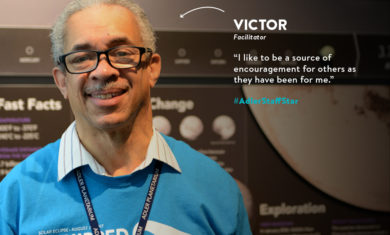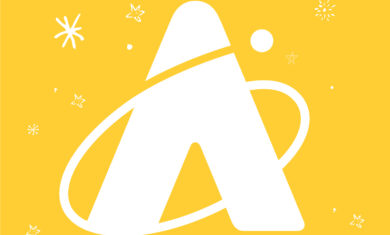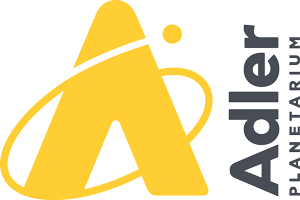Adler Astronomers To Develop AI Tools For Astronomy

Header Image: Digital x-ray 3D rendering of a human brain.
It’s a strange moment for artificial intelligence. The general public is slowly becoming aware that the same technology that scans faces in large-scale surveillance operations can also mimic famous voices, produce terrible college essays, drive a car (sort of), and generate inedible pizza recipes. Meanwhile, AI backers are telling us that someday, this very same technology may help cure deadly diseases, but it might also take your job and/or destroy the world.
So, where do we go from here?
Nobody knows what AI systems will and won’t be capable of 20 years from now. But thanks to a $20-million grant from the National Science Foundation and the Simons Foundation, scientists from the Adler Planetarium will help shape the technology’s future and untangle the ethical questions that arise from harnessing its power for astronomy research.
The five-year grant will establish the NSF-Simons AI Institute for the Sky (SkAI Institute)—a consortium of 83 team members from the Adler, Northwestern University, the University of Chicago, the University of Illinois, FermiLab, Argonne National Laboratory, the Art Institute of Chicago, the University of Wisconsin, and the Toyota Technological Institute.
Machine learning models (a subset of AI) are designed to take in a massive amount of data and look for patterns quickly. That’s what makes these models a good technological match for astronomy, which can produce data sets that span the entire known universe. Projects like the Rubin Observatory’s Legacy Survey of Space and Time (LSST) are poised to generate dozens of terabytes of images each night for a decade or more—far too many for human researchers and volunteers to sort through manually.
As part of the grant, Adler astronomers Mike Zevin and Cliff Johnson will build new machine learning models to aid their research on black holes and stars, and—along with Adler astronomer and VP of Science Engagement Laura Trouille—will work with the SkAI Institute to design and build AI functionality into Adler Zooniverse.
Zooniverse connects researchers with millions of volunteers around the world who help sort and label large data sets. The Zooniverse-SkAI team’s intent is not to replace these dedicated volunteers with AI—it’s to build tools that can complement their skills, give researchers a fighting chance at finding the new information in a vast ocean of data, and invite volunteers to ask questions and offer feedback about the ethics of AI.
Another important function of the institute will be increasing the public’s understanding of AI in research. Adler astronomer Mike Zevin will co-direct the SkAI Institute’s Public Outreach Program and facilitate discussions between about 100 local astronomers and 25,000 Adler guests in the coming year, with special sessions that focus on AI in astronomy research.
Learn More About Adler Zooniverse
Researchers need volunteers just like you to assist in processing large sets of data for projects across a variety of different topics like art, biology, climate, history, language, literature, medicine, nature, physics, social science, and space.






